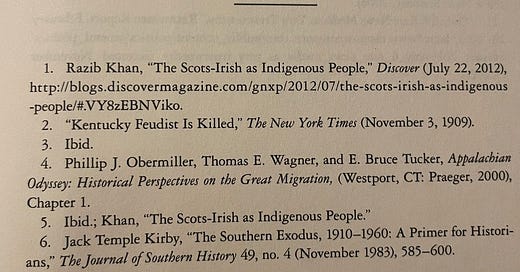From my new column in Taki’s Magazine:
Steve Sailer
July 17, 2024
This week’s dramatic events—Trump surviving being wounded by a would-be assassin quickly followed by his selection of Sen. J.D. Vance (R-Ohio) as his running mate—will focus attention on the newer generation of higher-brow rightist thinkers because it’s now thinkable that Vance, whose first endnote in his bestselling 2016 memoir Hillbilly Elegy is to a genetics blog post about his Scots-Irish people by my friend Razib Khan, might someday be President. …
Whether Vance can convert his obvious intelligence into broad appeal to the Republican electorate, which has been trending downscale in this century, remains to be seen. …
But it’s hardly improbable that Vance’s new generation/post–Paul Ryan intellectual interests will drive the press into a tizzy over the next week.
Personally, I don’t know that much about Vance. To the best of my knowledge, I have never had a back-and-forth communication with him, in person, on the phone, or digitally.
Nonetheless, this seems like a good point in history for me to post online my concluding chapter—“What if I’m Right?”—from my anthology Noticing …
Because the VP nominee is likely to be attacked for an unproven familiarity with my ideas, I thought I’d post my explanation of why some of the smartest people think that, contrary to the conventional wisdom, I’m the most reasonable pundit in America.
Read the whole thing there.





Utterly reasonable article, but this part is the key to understanding why you were banished from the in-crowd for so long:
"Yet, ultimately, I believe that the truth is better for us than ignorance, lies, or wishful thinking."
I don't think that's a common sentiment, despite what people say. If it were, there would be Steve Sailers all over the place, but there aren't.
People flee from the truth all the time. The intelligent do so as much as and possibly more than average folks (they are better at deception after all).
Truth is not generally seen as liberating, but rather as an obstacle to be overcome, or at least avoided for as long as possible. It is resented, feared, shunned and often assaulted.
In this world the truth is a leper, a pariah, an outcast. Also an intolerable burden that weighs men down with guilt, a monstrous apparition that causes the worst of nightmares, and a constant reminder of our failures, frailties and limits.
If we could do away with the truth we would. Just think of how many times we've tried.
Steve, in my own life I have seen a big change in myself - as someone who has always felt naturally "liberal" - there's something profound and satisfying about, well, finally admitting to yourself that most of what you "notice" about the world is in fact true, despite what we hear to the contrary.
This will sound a bit cliche, but in my early twenties, I read Ayn Rand for the first time. It occurred to me while reading your piece why Ayn Rand remains so popular. It's not that Objectivism is unassailable as a philosophy or that her books are particularly well-written (they're much better than she's given credit for, overall) - it's that she was a noticer; a gateway to being a noticer yourself. In pointing out the perils of Collectivism (as she called it), and the various moochers and poor incentives of the modern welfare state to the simple fact that some people contribute immensely to society and others do not - she gives us, the readers, permission to finally acknowledge to ourselves what we intuitively see about the world. If there's such a thing as being "red pilled" that was it for me. It was confirmation that all those little doubts and critiques of the mainstream narrative that I kept to myself were not moral failings, but simply reality poking through the veil of bullshit. I was not crazy - the world was, and that's at least somewhat comforting. The narrative remains the same, so Rand remains popular as one of those "gateways" to allowing yourself to believe your own eyes.